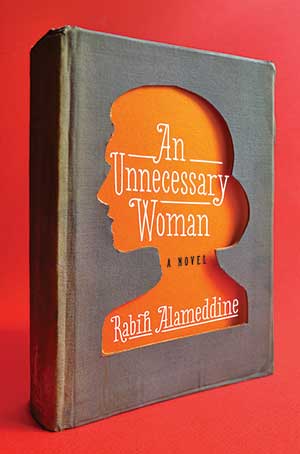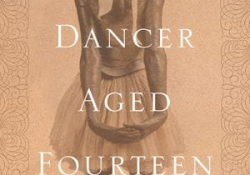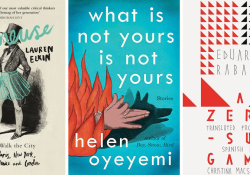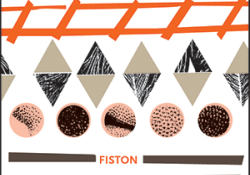Editor’s Pick: An Unnecessary Woman by Rabih Alameddine
 With a dose of wit and self-deprecation, Aaliya is a narrator who doesn’t fail to entertain. Rabih Alameddine invites the reader into Aaliya’s late-life crisis where—after a few glasses of red wine—she has dyed her hair irreversibly blue. From here, her present days are often uneventful and filled with solitude, but the novel itself is far from stagnant. Aaliya’s ruminations on her past seventy years give the reader a surprising journey that includes war, romance, stoic individuality, and nights sharing a bed with an AK-47 in place of a husband.
With a dose of wit and self-deprecation, Aaliya is a narrator who doesn’t fail to entertain. Rabih Alameddine invites the reader into Aaliya’s late-life crisis where—after a few glasses of red wine—she has dyed her hair irreversibly blue. From here, her present days are often uneventful and filled with solitude, but the novel itself is far from stagnant. Aaliya’s ruminations on her past seventy years give the reader a surprising journey that includes war, romance, stoic individuality, and nights sharing a bed with an AK-47 in place of a husband.
Aaliya’s story is backdropped by the Lebanese civil war, and the lens through which Aaliya sees—perhaps tolerates—the world around her is one composed of literature, language, art, and music. Digging into the eloquent thoughts and melancholy history of this sharp protagonist makes for a beautiful story that is rich in humor while also effortlessly enlightening about the past several decades of Beirut’s history.
The book is also a delightful voyage through literature’s most prominent writers and translators without feeling out of reach to the casual reader. Aaliya is a translator by hobby, and her oeuvre of thirty-seven closeted translations ranging from Anna Karenina to The Book of Disquiet are an essential part of her story. “Literature is my sandbox. In it I play, build my forts and castles, spend glorious time. It is the world outside that box that gives me trouble.” She’s a recluse with a comical distaste for the world around her, but a surprising tenderness emanates from Aaliya when it comes to literature. Her sentiments about language are expressed beautifully in Alameddine’s excellent prose. For example, in the following passage, Aaliya laments about her neighbor Joumana, one of the women in Aaliya’s apartment whom she has christened the “three witches.”
Like most Lebanese, Joumana speaks rapidly, one sentence dovetailing into another, producing guttural words and phrases as if gargling with mouthwash. I prefer slow conversations where words are counted like pearls, conversations with many pauses, pauses replacing words.
Much like a musician who respects the value of silence, Alameddine is an author who respects the economy of language. The passages of this novel are savory, and each sentence is thoughtfully crafted. And Aaliya is one of those protagonists you don’t easily forget—her sardonic thoughts and eloquent perceptions will linger long after completing the book.
Jen Rickard Blair
Digital Media Editor



















